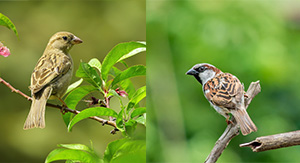
Smithville, New Jersey is a picturesque town filled with lush greenery and natural beauty. For this reason, tree companies in the area embrace native trees. The number one reason tree and landscaping companies promote native plantings is because they offer a wide variety of benefits. In addition, non-native species offer little benefit. Rather, they often cause more harm than good. They don’t provide the same food and shelter as native species and they often cause native trees to weaken leaving them vulnerable to pests, diseases, and lack of sunlight. In this article, we will explore all these reasons why expert tree care includes the best tree company in Smithville always choosing to work with native trees.
Native Species are Made for the Surroundings
Native tree species are perfectly adapted to the local climate and soil conditions. They have evolved over centuries to thrive in the specific conditions of the region, which means they are more likely to grow strong and healthy. In contrast, non-native trees may struggle to adapt to the local environment and require more maintenance and care. For easy care with a high chance of success, always choose native species.
Another benefit of native trees is that they are better equipped to resist pests and diseases which are often specific to the environment. This is because they have natural defenses that have developed over time, making them less vulnerable to attacks from insects and other pests. This means that less chemical intervention is required to keep them healthy, making them a more sustainable and eco-friendly choice.
Wildlife Loves Native Species as Much as a Tree Company in Smithville

Healthy trees play an important role in supporting local wildlife. The benefits are boosted when the varieties are native. They provide food and habitat for birds, insects, and other animals that are an essential part of the local ecosystem. It can be dangerous for native wildlife to ingest the fruits and berries of non-native trees. Plus, these trees can overshadow native species causing them to die off. Other non-native trees can actually poison native trees and wipe out an entire area. By planting and preserving native trees, Smithville tree companies are helping to create a healthy and diverse environment for the community to enjoy.
You Don’t Need Exotic Species to Enhance Aesthetics
Many people thing you need to choose an exotic or hybrid species in order to be able to add visual interest to a garden or yard. Many native trees also offer aesthetic benefits. They often have unique shapes and colors that reflect the character of the local landscape. This means that they can be used to enhance the natural beauty of the area. Native species easily enhance a yard making it more attractive to visitors and residents alike. Furthermore, because native species attract more wildlife, your yard will be filled with more and more wildlife. To enhance your outdoor ambiance, always choose native.
The Best Tree Company in Smithville Loves Native Trees
In conclusion, as a tree company in Smithville, always embrace native trees because they are a sustainable and eco-friendly choice that is well adapted to the local environment. They support local wildlife, offer aesthetic benefits, and help to preserve the local heritage and cultural identity. Smithville has a long history of forestry. Native trees have been an integral part of the region’s natural heritage for centuries. By working with native trees, tree companies can help to maintain this heritage and ensure that it is passed down to future generations. Native species also improve the environment by absorbing carbon out of the air. Plus, native plantings work alongside the environment better by requiring less water and preventing erosion. By choosing to work with native trees, Smithville tree companies are contributing to the long-term health and prosperity of the community.

